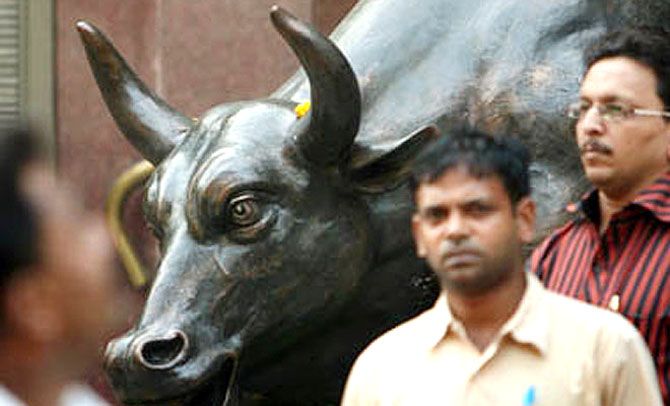The major indices, such as the Nifty and Sensex are trading below their respective 200-Day Moving Averages, and a sequence of lower highs and lower lows being seen.

There are signs that the major market trend might have reversed and turned bearish.
The major indices, such as the Nifty and Sensex are trading below their respective 200-Day Moving Averages, and a sequence of lower highs and lower lows being seen.
Breadth signals have also gotten bearish with declining stocks outnumbering advances.
The bear market is not confirmed but it might be a good time to review the situation in technical terms.
The bull market peak came in March 2015, at a Nifty intra-day value of 9,119.
The previous bull market started in December 2011, when the Nifty bottomed out in the zone of 4,500 - at 4,531 to be precise.
The market has seen net gains through 2012-2015 although there have been several corrections in this period.
We might assume that the bull market has lasted about 39 months (January 2012-March 2015) and the ongoing correction has now lasted about five months.
The total gain, bottom to peak, was about 4,600 points in this 39-month period. We have since seen a correction to a low of 7,667 in August 2015 this is about 16 per cent down from the peak. Corrections have a time component.
If a bull market lasts for a given time, the subsequent bear market could last for about a-third as long.
So, we might see the bear market continuing for about another eight months or so, given that it has already been in force for about five months.
Corrections also have a quantity component. The Fibonacci theorists claim any move could retrace 37.2 per cent of the previous move.
If it was more severe, it could retrace 61.8 per cent. Other "significant correction levels" are reckoned to be 50 per cent and 75 per cent.
A 37 per cent correction of the previous move from 4,531 to 9,119 would imply the Nifty landing somewhere around 7,400.
A 50 per cent correction would leave the index at 6,800, while a 62 per cent correction would take it down to 6,275, while a 75 per cent correction could take it down to 5,680.
The Indian stock market has seen corrections in the range of 60 per cent or more several times though a 75 per cent correction has not occurred since 1991.
The 2008 bear market led to 65 per cent retraction from the previous bull market highs. The 2000-2001 bear market also led to 58 per cent correction.
So, the deep correction possibilities are credible. Will such deep corrections as these occur?
Obviously we can't tell. It is quite possible that the market will bounce back and recovery to 9,000-plus levels or even score new highs.
However, the very fact that there has been a five-month correction already makes it somewhat more likely that the correction will continue.
The trader should be prepared for a situation where there are more in the way of downtrends than uptrends.
Hence, he should ideally be looking for instruments, which can be easily sold, such as futures contracts.
A long trader should be more stringent about setting stop-losses in a market where most assets are likely to be travelling down.
An investor with a long term perspective should welcome this correction.
Values have been overheated in the Indian market for quite some time.
A downtrend or correction call it what you will, will enable long-term investors to increase their holdings and average down acquisition price.
But they will have to pick sound businesses and they may have to hold stocks for a fairly long period.
Devanghsu Datta is a technical and equity analyst









